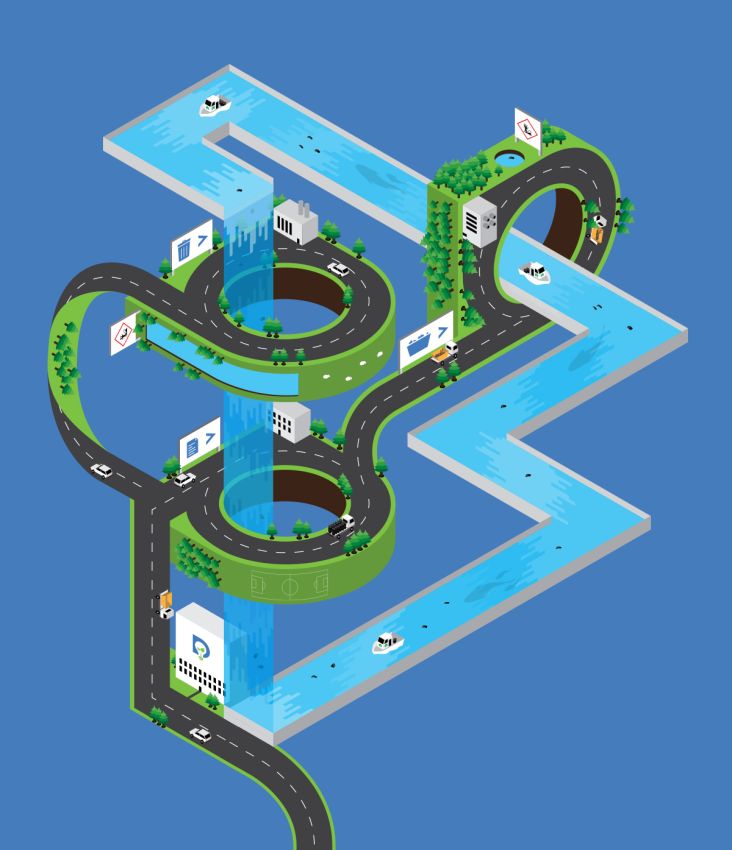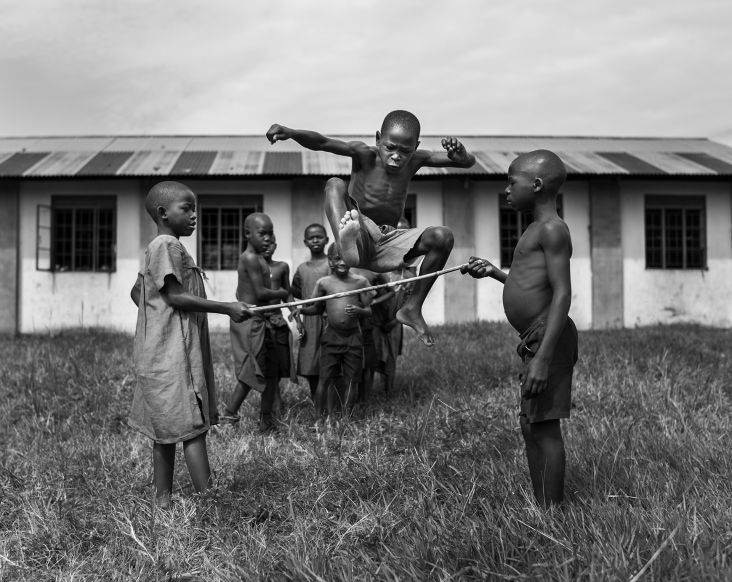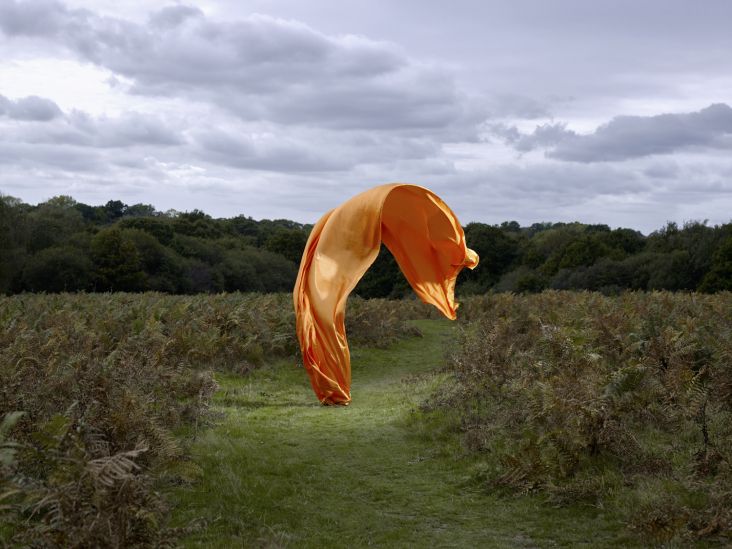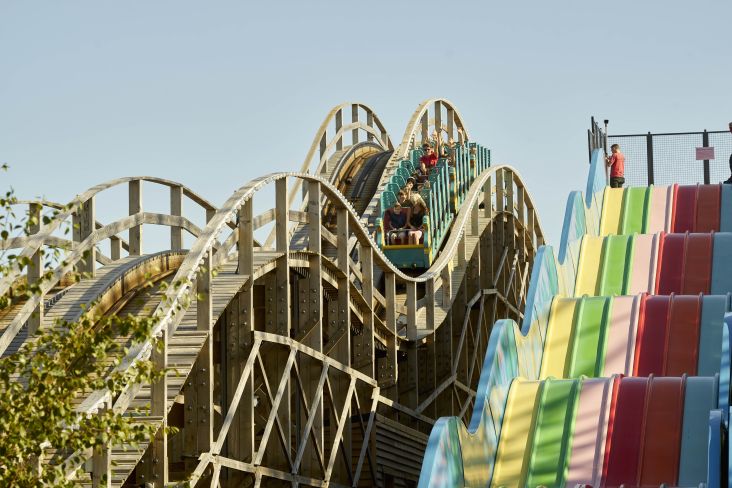Kim Farrall & Sally Evans of Off Grid on escaping the city, remote working and embracing rural life
Do you ever get the urge to swap city life for greener pastures? Leave the hustle and bustle for a quieter existence out in the sticks? Do you think you could cope with the change? Friends Kim Farrall and Sally Evans might be just the inspiration you need. They recently moved from Manchester city centre to live in the leafy Cheshire countryside and launch their own independent design agency.
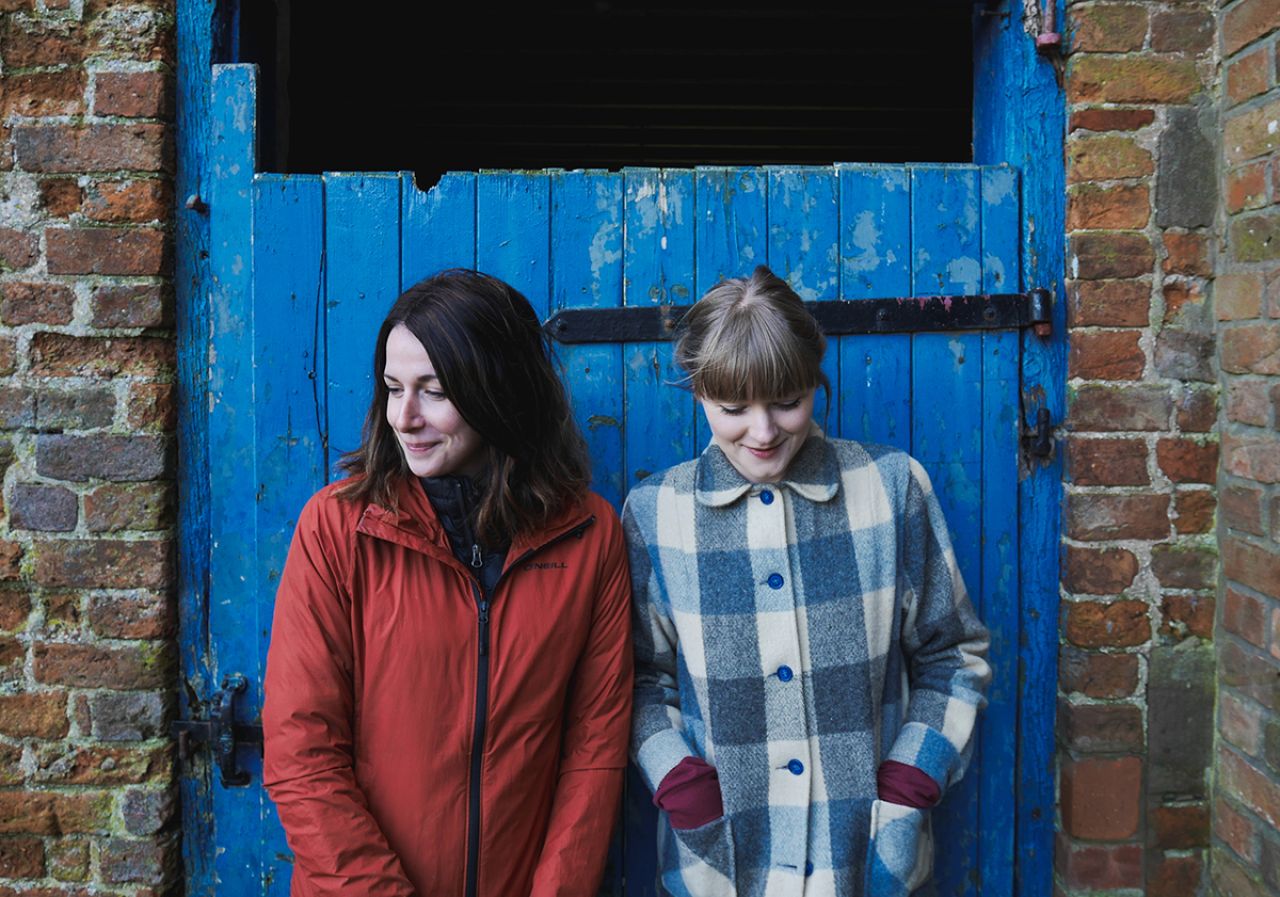
Kim Farrall & Sally Evans
Aptly named Off Grid, their studio is remote so they can enjoy working from home as well as from different spaces that inspire them. It's no wonder they like to consider themselves as "nomadic designers". We chatted with Kim and Sally about why they've ditched city living, how they run a successful business remotely and how they tackle the dreaded Fear Of Missing Out.
How did you two meet and come to launch a business together?
Sally: We met at Uni, although we didn't know each other very well during that time. Then about four years ago we both attended a mutual friend's wedding and got chatting about design and the fact that Kim had just gone freelance. A few months later, I got Kim in to contract at the agency where I was working in Manchester, she fitted in so well that the guys decided to hire her full-time.
We found that we worked really well together, and after a while, everyone else realised how well we complemented each other on projects and started to plan projects so that we could join forces, kind of "pair designing". Working mainly with developers, this seemed really natural as they would often pair code and found it to be beneficial, and although it might seem odd to other designers, it really worked for us.
We stayed at that agency together for two years before deciding that we wanted to have more control over the projects that we were working on. We would spend our lunchtimes chatting about projects that we’d seen on Pinterest or design blogs and how we’d love to create products that would make a real difference to people’s lives. Then one day we decided, instead of talking about it, we should just do it!
That's great. So why the name Off Grid?
Kim: We knew that we wanted to change the focus of how we worked and address our work-life balance, plus we’d both had enough of working in big cities and always dreamt of a little studio set amongst hilltops in the middle of nowhere, well and truly "off the grid". We also quite liked the little nod towards how graphic designers work with grids, and how we were looking to disrupt our way of working.
So you ditched city life for the country. How does that feel?
Kim: It feels like we’re exactly where we should be. We’ve both spent the past few years working in large cities such as Manchester, as well as London, Amsterdam and New York, and knew it was time to return to the space and freedom of the countryside.
At the time, building up our careers, the city was where we needed to be and we fully immersed ourselves into it and loved (almost) every minute. But now, with the freedom that the digital world affords, we can work from anywhere – and luckily for us, we’re building up a client base that feels the same way.
Do you ever suffer from FOMO? Or regret your decision?
Kim: Always, doesn’t everyone? At the start, when no one knew of us and money was tight, we couldn’t help but falter, but then you just think about the positives. I often have to remind myself how negative thinking is pointless, it’s a waste of brain space, all you can do is keep going. I think, luckily, we both feel that it’s the best thing we’ve ever done, and there is no going back!
Sally: I think, if anything, I’d like to live further out in the sticks! I love the time that we spend in Manchester, and it’s still one of my favourite cities, but you lose that when you work there. The commute becomes tiring and the initial excitement of city life becomes monotonous, being out of it means we appreciate it that bit more when we do choose to venture in.

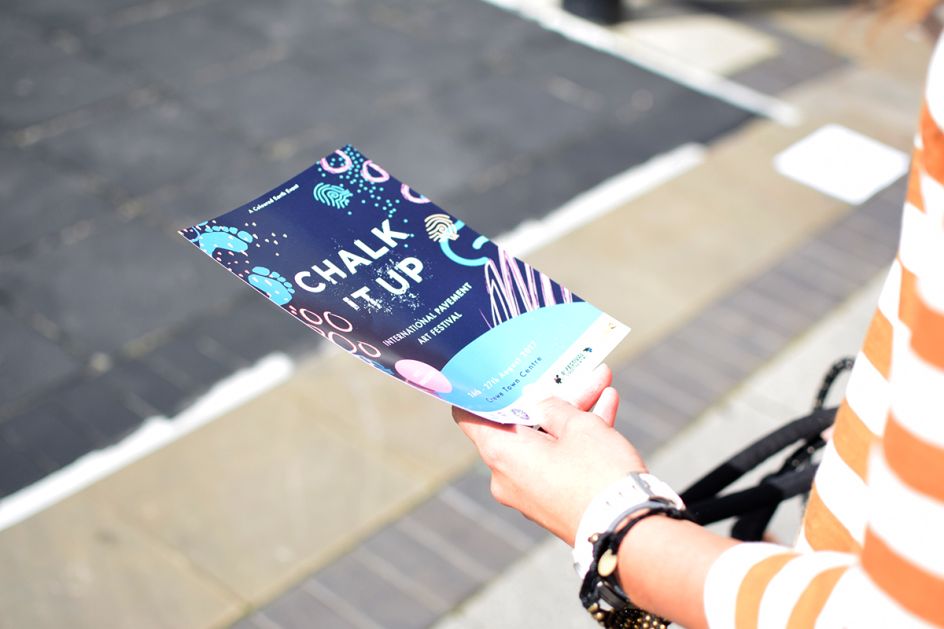
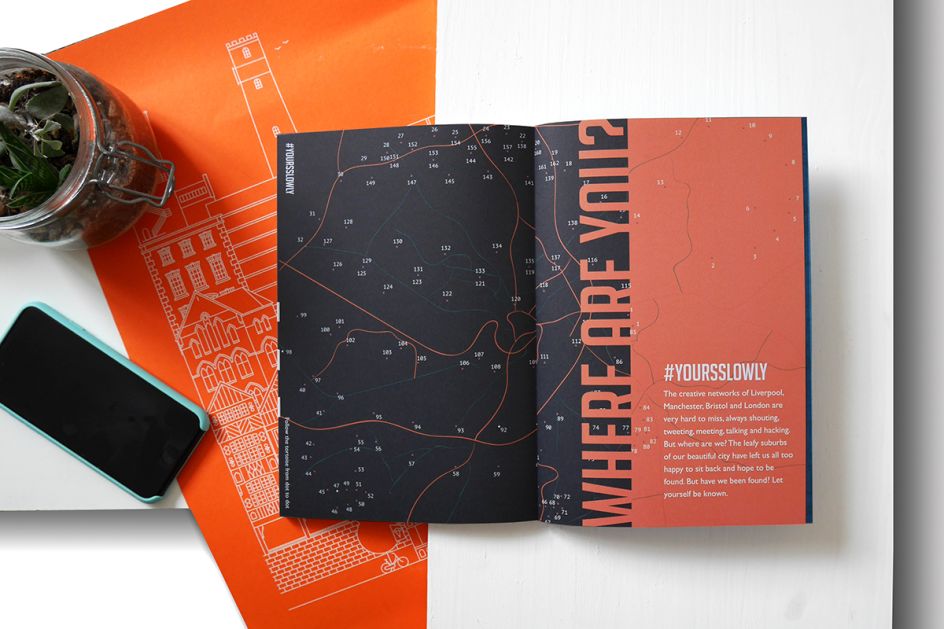
Cities are definitely growing. Urban life is promoted everywhere – in advertisements, magazines... Why do you think there has been a shift in the last decade or so to urbanisation?
Kim: The fast pace of life, the opportunities, the feeling that you’re exactly in the middle of everything that is going on right now. That's how I felt when I wanted to live in big cities anyway. Everything is on your doorstep and so immediate, you can do anything and be anyone.
Sally: I think that people are drawn to cities to study, work, and to explore new social activities, many of which are harder to find in rural areas. Due to this, our cities have been steadily growing, but maybe with a lack of attention to what people actually need to be happy. There are so many studies around the connection between the rise in depression and our growing disconnect with nature. Living in big cities with limited green spaces seems to feed stress and the need to constantly drown our brains with information. I find being surrounded by nature is calming and encourages me to slow down and clear my mind.
Do you think that growth will continue?
Kim: I feel that there is a shift towards rural living, but that's perhaps to do with the people I surround myself with and the opinions that I hear. Many of my friends who are down in London often message me about how jealous they are of my lifestyle up here. The fast-paced big city living can be exhausting and people seem to grow tired of it as you step into your 30s.
What were your own reasons for moving out of the city?
Kim: I wanted a dog. I could tell you a million other reasons, but the honest answer is that I wanted a dog! We both also needed to have a good dose of nature in our lives, we seem to thrive off it.
Sally: We both already spent a lot of time outdoors, and often had to travel to find green spaces. Having grown up in the countryside it felt really odd not to have nature on our doorsteps, and I think we both missed the freedom that came with that.
How do you make your business work out in the sticks and remotely?
Kim: We always set out to get said studio on a hillside in the middle of nowhere, but when we first started we mostly just worked from home, and actually began to love the freedom that that offered. So we’re either at home, at each other's houses, my parent's farm, at a coffee shop in either Chester or Manchester or we rent a desk from Industry in Chester and even a shepherd's hut in Wales!
If we’re meeting a client we’ll either go to their office, a coffee shop or (our favourite) invite them out for a walk and a chat. People seem more than happy to meet you outside of their work, and the relaxed setting of a coffee shop or just out walking encourages better conversations and a more honest connection with people. We’ll obviously rent a meeting space when a workshop or presentation requires it too.
Sally: When we’re not working from the same place we use Slack to be in constant contact. We clock in at the same time and take breaks at the same time, which really helps us focus. I know a lot of people that work from home that say they get distracted and just start doing the dishes or watching Netflix. But we find working this way has created the structure that we need to be productive.
Does it matter where a business is based these days?
Kim: I really don’t think so. We still ideally want to have face-to-face meetings with our clients, because those relationships are a big part of why we set up our own studio. But we’re both more than willing to hop on a train or jump in the car to go and meet someone for a chat. Other than that, the majority of our work can be done from anywhere and as long as what we’re producing is something that a) we’re incredibly proud of and b) the client is more than happy with, then the address of your office, if you even have an office, doesn’t matter.
The city will always be there, and you’ll appreciate it even more when you take trips back, but country living offers a way of life that will make you feel more alive.
Your Instagram feed is so refreshing. We can almost feel the serenity and calm. Can better work be achieved with more headspace?
Kim: Yes. It took us a while when we first started Off Grid to allow ourselves the time and space to get outside, clear our heads and make sure that we were in the best place, mentally, to be able to do our jobs well. There is a guilt to closing your laptop between the hours of 9-5 and go out for a walk or run, that takes a while to shift. But now we’re starting to become quite attuned to it. When we’re busy with a project, especially one that is quite creatively demanding, it's more important than ever.
We’re now at the point that we can read off each other's work when we need a break. If you can see that the other one is stuck and going in circles we’ll tell them to stop, go make a brew or take the dog out. That three hours of going in circles, just so you can say you worked until 5 pm can be replaced by a walk outside somewhere beautiful, to raise your heart rate and get the blood pumping and to return to the work that evening/the next day with a completely refreshed mind.
What's been the biggest surprise since you moved to the country?
Sally: Honestly, not being able to get a decent curry. Haha. I guess you get used to the convenience of living in a city and having so much choice. I’m a bit of a foodie and always enjoyed visiting new restaurants and trying new food, and although you can get some really good pub grub, and top-notch fish and chips out here, I’ve really missed the amazing variety of cuisines that are on offer in the city. My response has been to be more creative in the kitchen and up my cooking game. I’m currently perfecting my tacos.
And have there been any issues or disappointments? If so, how have you resolved them?
Sally: There are always disappointments when you’re pitching for work, you can't win them all! There have been some projects that we would've loved to work on that just haven't panned out, but as designers, you learn quite early on to take stuff like that on the chin and keep going.
At the start we had a few people tell us that they really liked our work and were confident that we would work really hard to produce a good product, but they just couldn’t take the risk of working with such a small agency. That was really hard to hear because it’s not something that you can change or work on. Luckily, we’re finding that the longer we’re around people seem to trust us, and our size becomes less important.
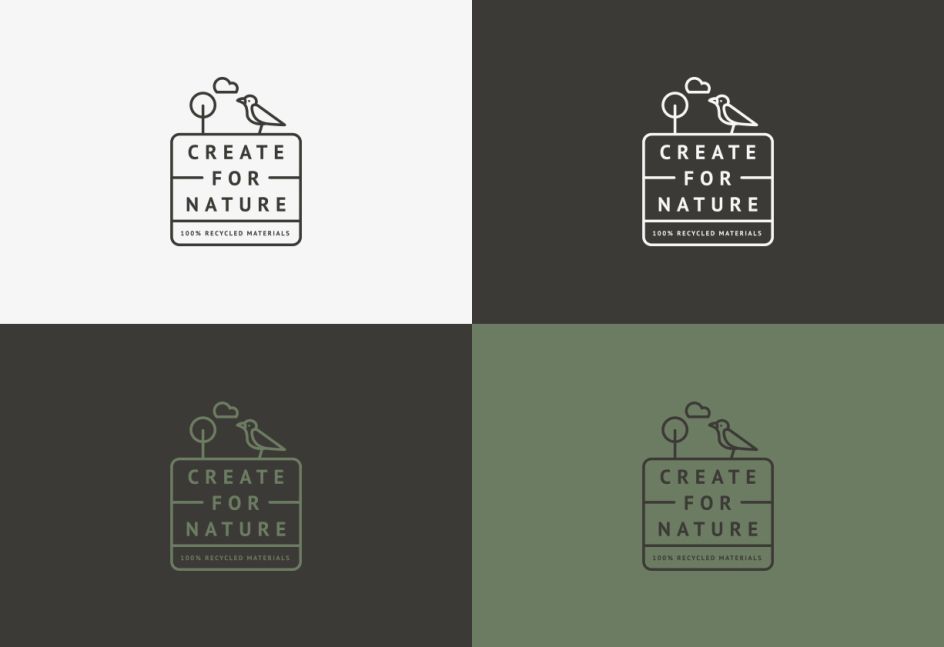
Cheshire Wildlife Trust
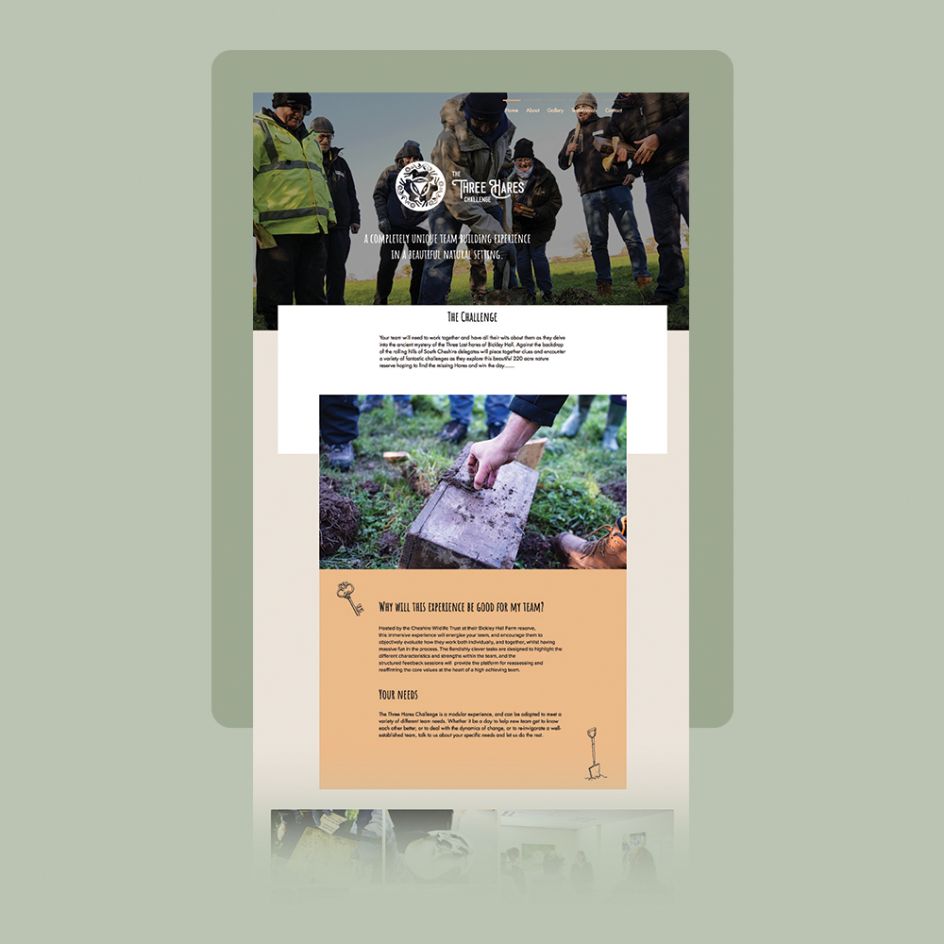
Cheshire Wildlife Trust
Do you still have to go to Manchester for work? If so, how does it feel when you're back?
Sally: We travel quite a lot as we have clients all over the place, but that’s part of what we love about how we work. We love taking time to visit our clients and getting a better sense of their story and brand. It’s also great to see new places. It beats sitting behind the same old desk every day! When we are in Manchester, it kind of feels like home, we’ve spent so many years living and working around the city and even though it's constantly changing it still feels familiar and welcoming.
Kim: I love when we get to go to Manchester for a meeting or event. There is always a new coffee shop, bar or restaurant for us to check out and we get to soak up the buzz of everything going on in the city before hot-footing it back on a train to our rural retreat. Having both studied, lived and worked in the city, it's still a place that is integral to who we are and somewhere we wouldn’t ever want to let go of.
How do you find new projects?
Sally: Most of our work has been through word-of-mouth recommendations, which is nice. But we also pitch for projects that we find on jobs boards, use digital platforms, and also just email people that we want to work with, and yeah that really does work sometimes.
Kim: We have a very clear idea about the type of people and businesses that we would like to work with, and the way we portray ourselves seems to attract those clients, which is fantastic. We also received a very helpful piece of advice early on, to go after the work that you want, rather than wait around for something to become available. I’m still not sure whether we’ve got our strategy for that right, and perhaps come across more fan girl, ("oh my goodness we’d love to work with you") than is appropriate. But we’ve got some fantastic projects that way so far, so we must be doing something right? Having projects like that – aspirational, dream clients – doesn’t half keep the fire in your belly burning!
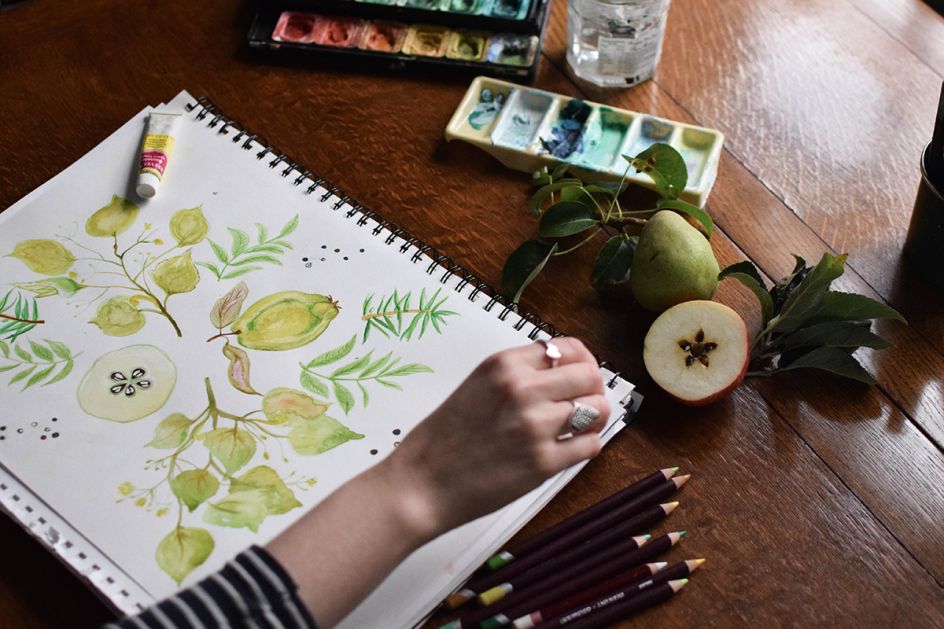
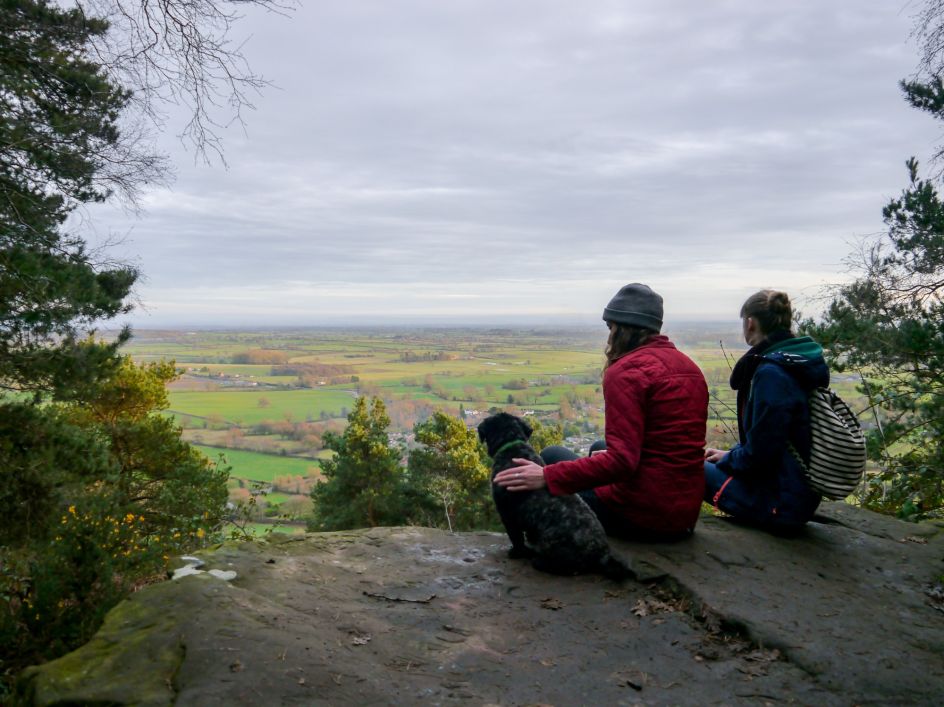
What advice would you give to anyone currently mulling over the idea of ditching city life for greener space?
Sally: Good transport is important. Being in the countryside is amazing, but if you’re used to the convenience of city life, you’ll need to be able to get back there without having to take three types of public transport or sit on the old stopper train that takes an hour to travel 10 miles. Also, check WIFI speeds – life without Netflix is not worth living! Haha.
Kim: Do it! The city will always be there, and you’ll appreciate it even more when you take trips back, but country living offers a way of life that will make you feel more alive. You just have to embrace it.




 by Tüpokompanii](https://www.creativeboom.com/upload/articles/58/58684538770fb5b428dc1882f7a732f153500153_732.jpg)


 using <a href="https://www.ohnotype.co/fonts/obviously" target="_blank">Obviously</a> by Oh No Type Co., Art Director, Brand & Creative—Spotify](https://www.creativeboom.com/upload/articles/6e/6ed31eddc26fa563f213fc76d6993dab9231ffe4_732.jpg)








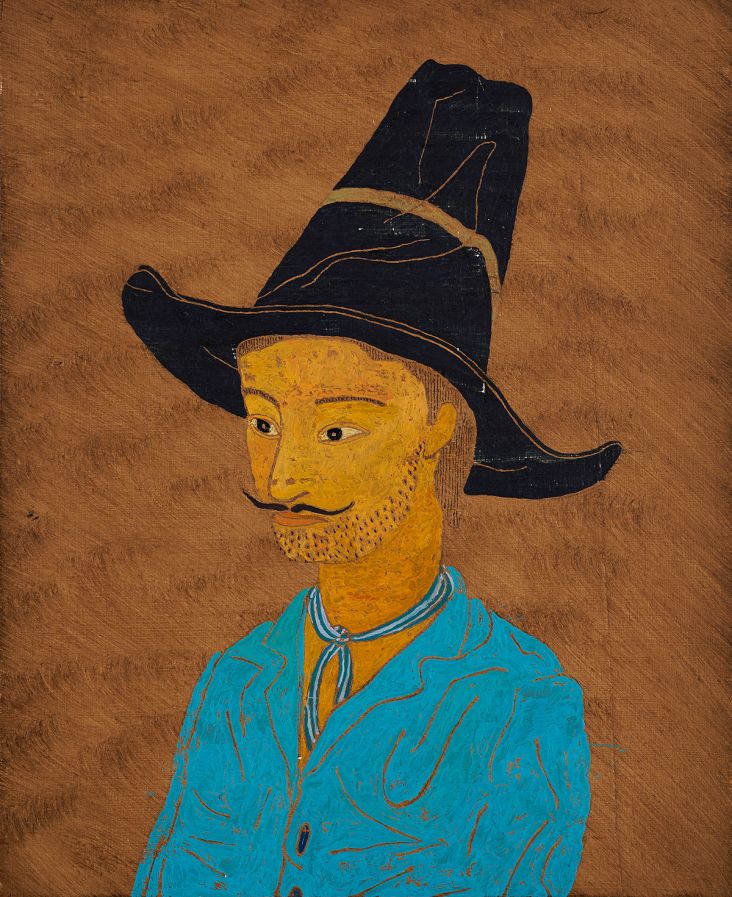
](https://www.creativeboom.com/upload/articles/71/71013751e0947eb55ac451f2286c73d8a061fccb_732.jpeg)
